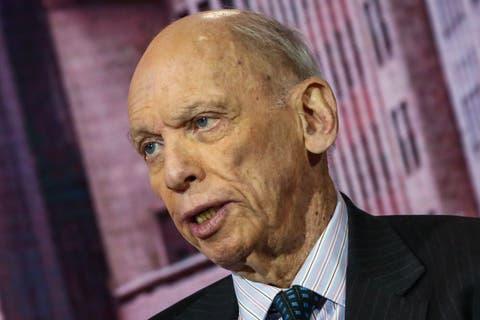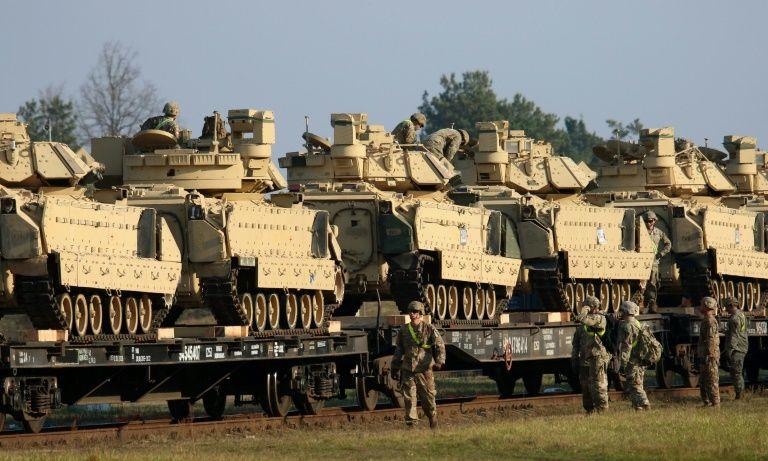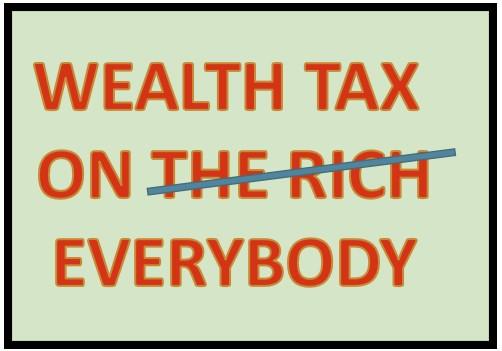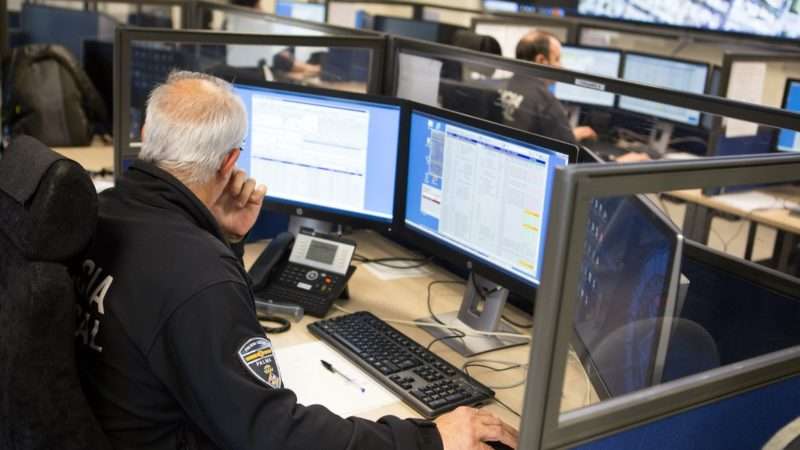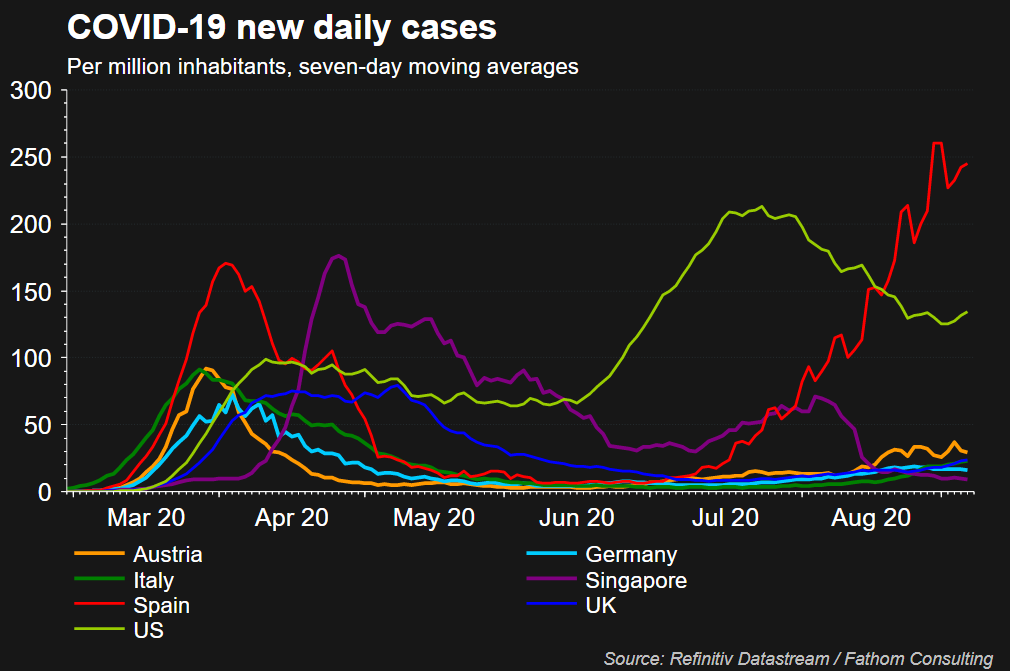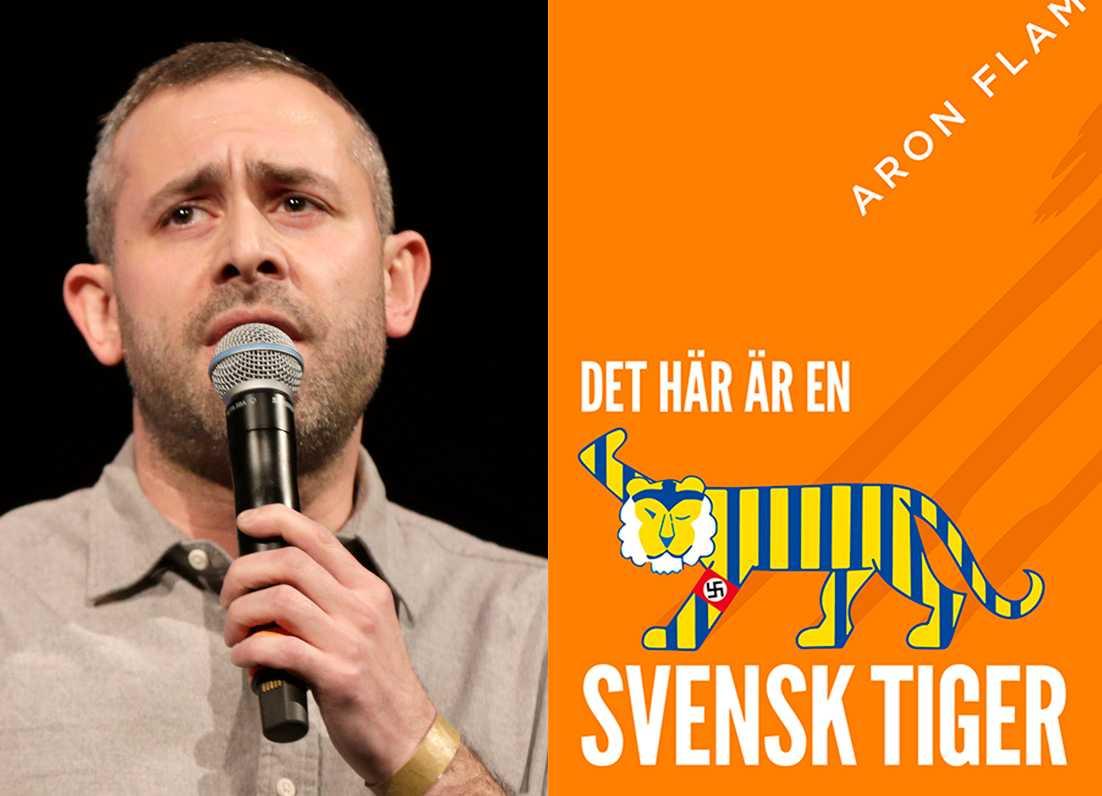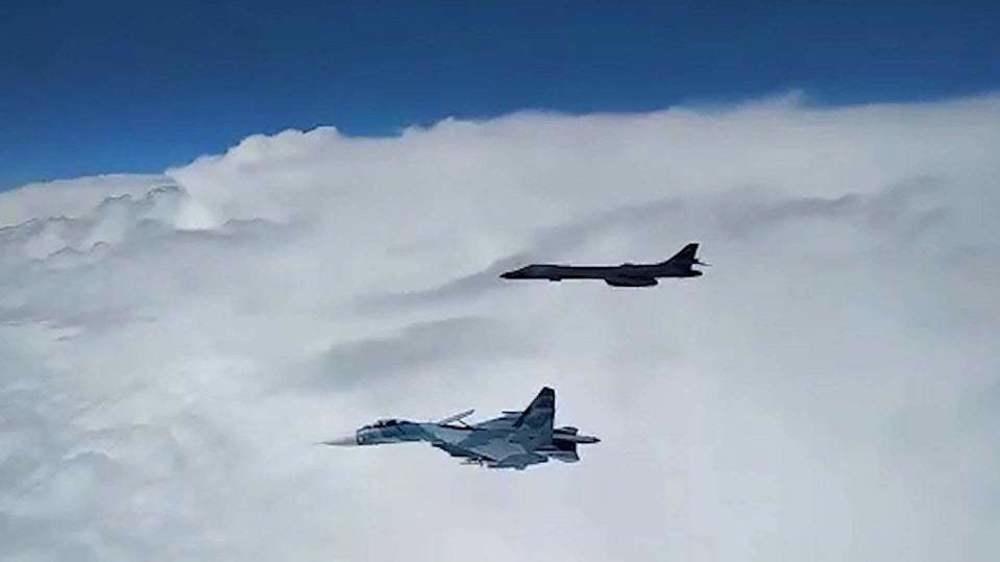Byron Wien Warns “This Market Is Vulnerable”
Tyler Durden
Tue, 09/08/2020 – 06:00
Authored by Christoph Gisiger via TheMarket.ch,
Blackstone’s market maven Byron Wien sees a significant correction risk. He warns of rising speculation in the stock market, the vulnerable state of the U.S. economy and possible turmoil in the course of the presidential election. He also shares his views on where he spots opportunities for patient investors.
Was this just a meaningless thunderstorm after an extraordinarily hot summer? Or should investors better prepare for a severe weather situation?
That’s the key question after a turbulent two-day stretch of trading that snapped a five-week winning streak for U.S. stocks. Popular tech mega caps like Apple and Microsoft lost 8% to 10%. Tesla is down more than 16%.
«There’s a lot of speculation going on. That’s probably not a healthy thing», says Byron Wien. «The market is vulnerable,» adds the renowned investment strategist during a conversation via Zoom from his private home in the East Hamptons.
Best known for his annual list of ten market surprises, Mr. Wien fears that the U.S. economy will recover slower than most investors think. He also believes that a lack of discipline in containing the pandemic, social unrest, record high debt and political bickering in Washington have a negative impact on America’s stance in the world, reflected in the weaker dollar.
In this in-depth interview with the Market/NZZ, the Wall Street legend explains why the risk of a correction is high, how the presidential election could cause trouble for stocks in the coming weeks, and where he spots attractive opportunities for patient investors.
Mr. Wien, the market rally has suffered a setback last week. Is this a harbinger of more serious trouble to come, or are stocks just taking a breather?
Most investors are confused because the economy doesn’t seem to be doing quite as well as financial markets. Yet, there really isn’t a disconnect: Individual investors are propelling the market to new highs, and they are doing it by pushing up the prices of the internet related stocks, the stocks that are benefiting from people working at home.
There’s a raging debate about the extent to which retail traders have been supporting this rally. What’s your take on this phenomenon?
There is a lot of gambling that’s going on. Individual investors that ordinarily would bet on sports events are betting on stocks. That’s being reflected in the FAANGs and names like Tesla. But I don’t think it’s indicative of the real world. Just look at the options market. There are a lot of individuals who are buying options, and they are particularly buying them with two weeks or less left to run. That’s speculation in the market and probably not a healthy thing.
As one of the most experienced market strategists in the investment business, you have seen a thing or two. To what extent does today’s mentality in financial markets remind you of the dotcom mania in the late nineties?
Every market cycle is different. In the late nineties, the dotcom bubble was fueled by a real breakthrough in technology, the advent of the internet. It was changing people’s lives, and that was a positive change. It just got carried to excess: The market got overpriced and it was selling at over 30 times earnings. Today, this is a different thing. It’s a negative surprise: A virus that is going to change the way we live, and it’s difficult to assess the long-term implications of it. In my opinion, the market is overpriced, but it isn’t as outrageously priced as it was back then. So the market is vulnerable, but I don’t think we’re going to have a bear market as a result of it.
Why?
In the United States, about 40% of the labor force can work effectively from home. And, we’re doing so with surprising effectiveness. I’m impressed with how much we can accomplish staying at home, even if we know we’re missing something: We’re not interacting with colleagues, mentoring junior people and cross-fertilizing ideas in group meetings. So the economy is moving along, but the unemployment rate is higher than 8%. That’s a lot of lost buying power because if you don’t have a job, you’re not spending much. And, even if you do have a job, you’re a little apprehensive. I’m not spending nearly as much as I would normally. I’m not going to the theater or to restaurants and I’m not buying any clothes. In addition to that, we’re going to have 17 million households evicted during the fourth quarter. That is 30 to 40 million people.
How will this affect the economic recovery?
I describe it as a square root recovery. So far, we’re through the V-part of it: Housing is back very strongly and manufacturing is bouncing back. For example, U.S. domestic auto production increased by 200% from May to June and has recovered to nearly two-thirds of pre-Covid levels. However, large portions of the economy are in serious trouble. The hospitality segment – including hotels, restaurants, resorts and cruise lines – will take a long time to recover. The airline industry may suffer from secular change. Thousands of small businesses have closed during the recession; many will never reopen, because their owners have gone bankrupt or chosen to retire. So now, we’re in a more gradual improvement. We will continue to work our way back to normal, but at a slower pace than we did right at the beginning of the recovery.
In the aftermath of the global financial crisis, the U.S. was first to come out of the recession. Will it be the other way around this time?
We’ve already seen that. China looks like it’s pretty much recovered, and Europe is following behind. The U.S. is lagging and that’s because we don’t have enough discipline in social distancing, in tracing, testing and wearing masks. There is a certain amount of defiance, and that’s hurting us.
So what’s going to happen next?
At best, the economy is a quarter or one third of the way back to normal. Yet, the market is pricing stocks as if we’re going to be back to 2019 levels some time next year. That’s very unlikely. The earliest we can get back to 2019 is 2022, and I’m not even sure about that. The market also thinks that we are going to have a vaccine by the end of the year. That’s a realistic assumption. It’s likely that the vaccine will be given to essential workers starting next year. But I don’t think that people like me will get it until the end of next year. So a return to normal is a 2022 phenomenon.
You love to travel and visit clients around the world. How does the pandemic affect your life on a personal level?
Right now, I go out once a week at somebody’s home for dinner, and I ask the person not to have more than six people. Most people adhere to that, but last Saturday night I went to a dinner and there were eight people over. I don’t think anybody would have more than eight people around a table. I have not been on an airplane since March, and I don’t intend to get on an airplane until I have a vaccine. I don’t go into a store. I do go to restaurants, but I order take-out from them. I live with my wife and occasional relatives at home, so I have no reason to complain.
It’s less than two months until the presidential election. To what degree will the race for the White House impact financial markets?
A lot will depend on who is going to win the election. Joe Biden looks like he’s going to win, but then the lead is narrowing. Also, there’s the controversy over mail-in voting. In terms of the number of votes that are going to be exercised on the day of the election, Donald Trump will be the leader. But when all the mail-in votes are counted, I think Mr. Biden will win. So the outcome is going to be very confusing at the beginning. Assuming Mr. Biden wins, it’s likely that taxes will be raised, and that’s not reflected in the earnings estimates of analysts. Thus, those who are forecasting that earnings in 2021 will get back to 2019 levels are too optimistic. I don’t think we have a shot at getting back to 2019 levels in earnings until 2022.
How will the stock market react if Mr. Biden wins the election?
The debates are going to be important and candidates are always subject to a gaffe. If the market was sure that Mr. Biden is going to win, stocks would be lower. In a Biden presidency, we’re going to see higher taxes on corporations and individuals as well as more regulations, especially environmental regulations that have been dismantled. So if the Democrats win, there are going to be some important changes, and they will probably be negative for the stock market. But the market is discounting the possibility of a Trump victory, and many investors view Mr. Trump as more favorable for the market.
How big is the risk of a correction against this background?
There’s a fair chance of a correction. Selling at 23 times next year’s earnings, the market is very fully priced here. It doesn’t discount anything that could go wrong. We have already seen the U.S. Dollar weaken by 10%. That could be a problem for the market. It will help earnings, but a weak Dollar is not a good sign. We don’t know how far the Dollar depreciation is going to go.
What’s behind the Dollar weakness?
I’m just saying the market is being priced for a continuation of the present environment, and there are a number of factors that could change the environment. We haven’t licked the virus yet, and even when we have a vaccine, we won’t lick it because not everybody is going to take the vaccine. For instance, only 40% of Americans obtain ordinary flu shots. And, those who do take the vaccine are going to take it over a long period of time. So today’s combination of social unrest, enormous fiscal and monetary stimulus, poor discipline in limiting the spread of the virus, gridlock in Washington and avoidance of international involvement may have diminished America’s standing among nations in the world.
For this year, the U.S. budget deficit is expected to hit a record $3.3 trillion. That’s more than double the levels experienced after the market meltdown and Great Recession of 2008-09. How worrisome is this to you?
There is a price to pay. We haven’t seen it show up in inflation or interest rates yet. So we don’t know what the price is going to be, but we just can’t keep on engaging in this fiscal and monetary stimulus indefinitely. We had an unprecedented level of stimulus, and that stimulus is supposed to get the economy going. But ultimately, the economy is expected to have a certain natural momentum on its own. That hasn’t shown up yet, so the market is dependent on continuous government subsidies. In my view, this is survival money: The economy is surviving on the basis of monetary expansion and fiscal spending. That means if it ever stops, the economy is going to recede and perhaps go into recession again – and that’s a very precarious position to be in.
There’s a growing number of market observers warning of inflation. Do you share their concern?
I’m not worried about inflation. Too many people are looking for jobs which means chances of wage inflation are low. There’s some food inflation, but the price of oil is still in the low forties, and that’s the most important commodity. In short, inflation is not going to be a problem and interest rates are going to stay low, and that’s a favorable background for the market.
What’s your take on gold?
I can’t say I’m a fan of gold, but I think it makes sense to own some gold here. I recommend it for individual clients, not for institutions. Individual clients should have a 5% position in gold. For institutions, there are still enough other things to buy.
On Wall Street, everybody knows you for your yearly prediction of ten surprises. What could surprise investors looking forward?
A big surprise on a global level is if there were more harmony between China and the West. The hostility between the two largest economies in the world is not good for the markets. So if there would be some reconciliation or some rapprochement between the U.S. and China that would restore normal relations, it would be interpreted favorably by the financial markets. That’s unlikely in a Trump presidency. It’s more likely, but not certain, in a Biden presidency.
What’s your advice for investors in this kind of environment?
There is a great deal of speculation going on in the market. Stocks like Apple, Amazon or Facebook reflect that. But there is a good part of the market that’s underpriced. There’s a pocket of the market, hospitality and energy, that’s attractive because eventually, we will return to normal. I don’t know exactly when, but when we do, those stocks will respond. For example, if you go out on the highway, there are already a lot of cars on the road, so people are driving right now. Notably, China is consuming more oil today than it did a year ago. Airlines, transportation and hospitality have performed poorly, and some represent good value for patient investors who can tolerate the risk as a part of their portfolio.
And where do you spot opportunities internationally?
I’m sort of on hold on the emerging markets. They’re attractive in terms of valuation. But on the other hand, they are suffering more than the developed markets. Europe is attractive, there is a lot of good value in Europe. My feeling is that financial stocks, the banks, are attractive.
via ZeroHedge News https://ift.tt/35bkkYy Tyler Durden
